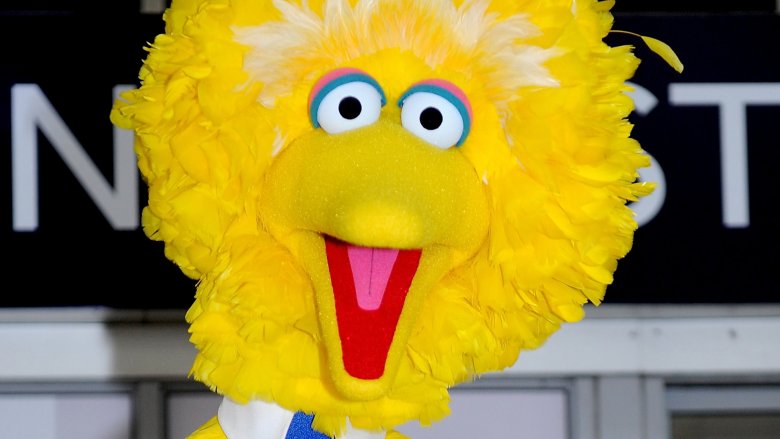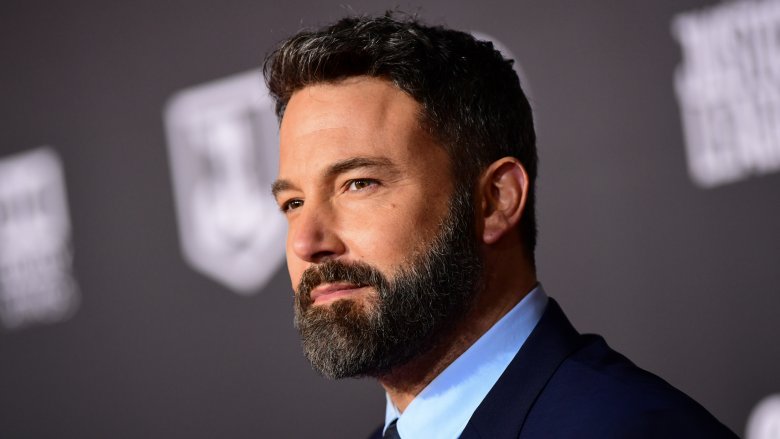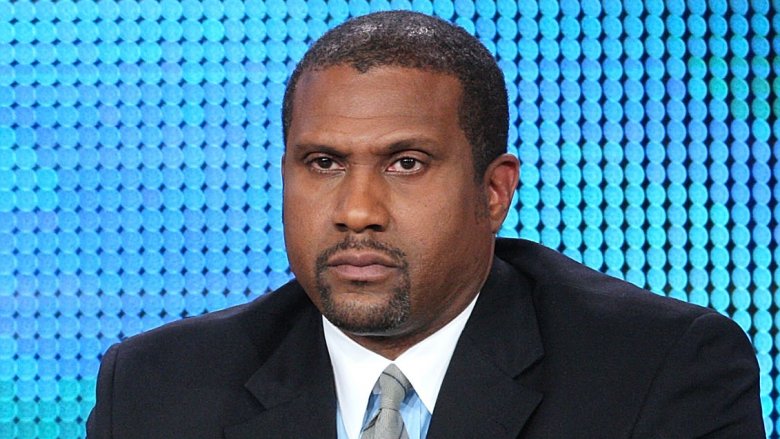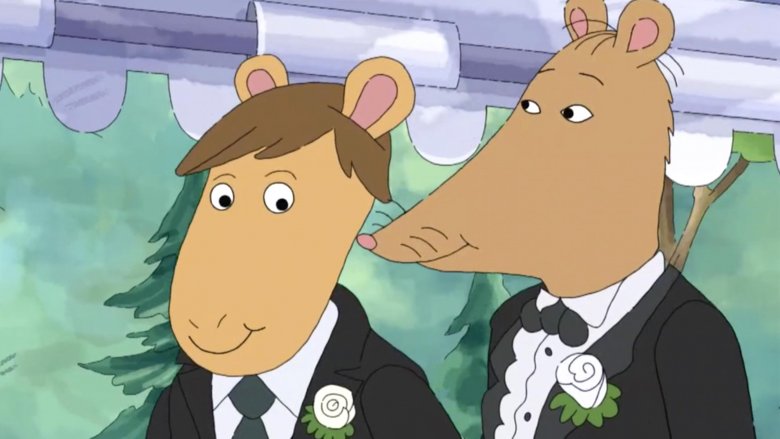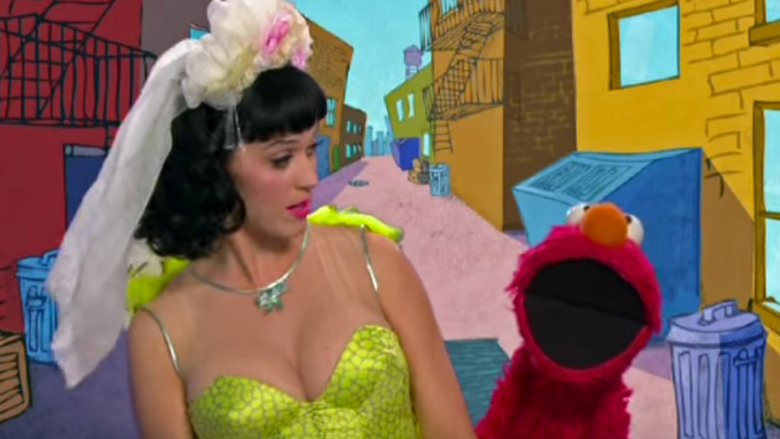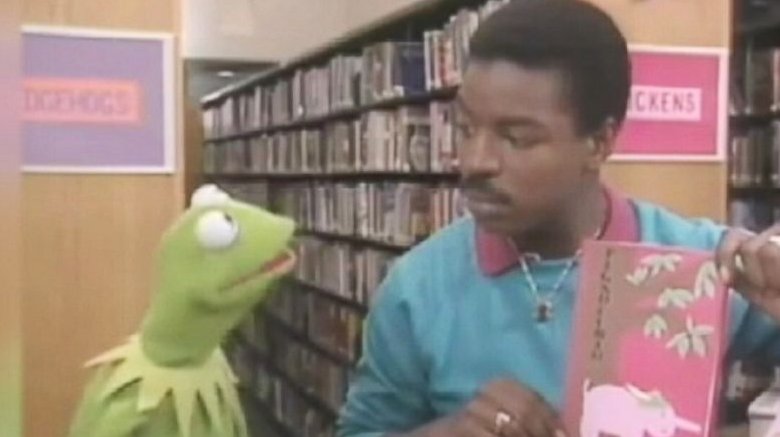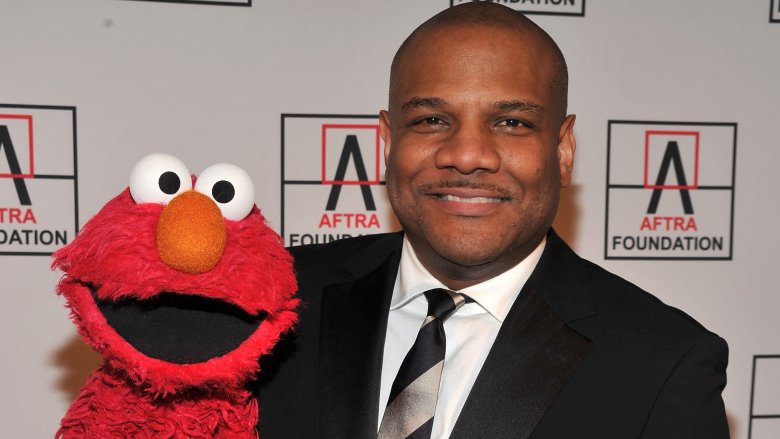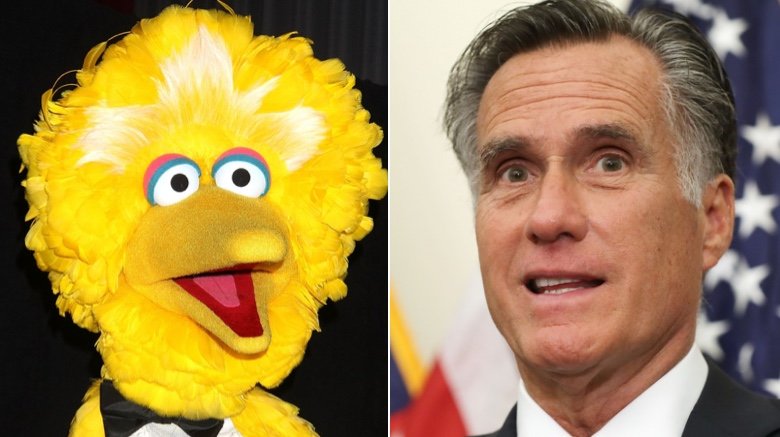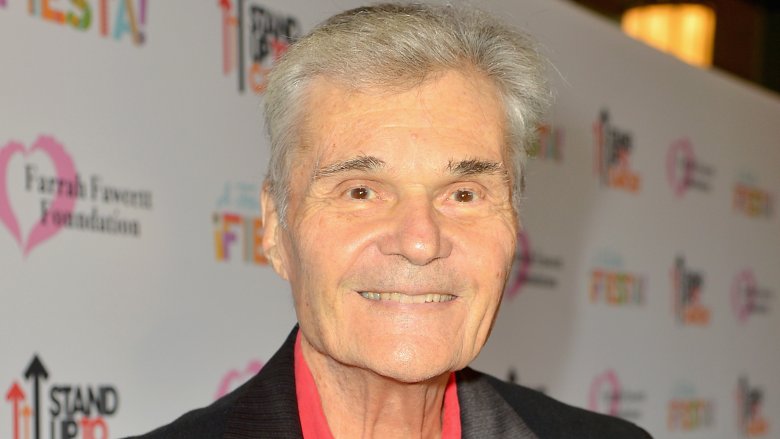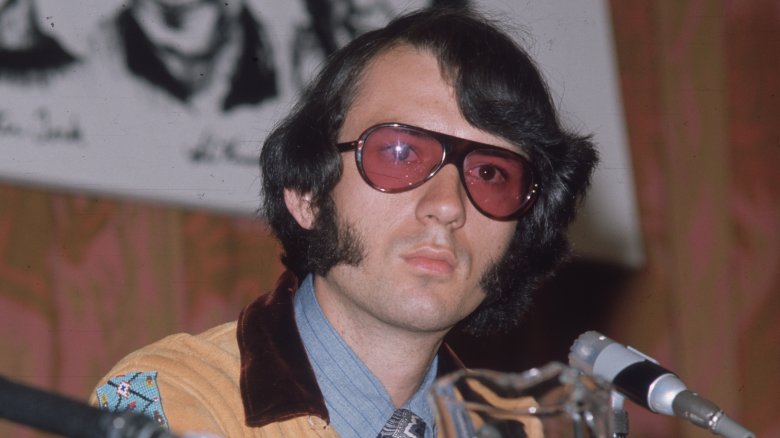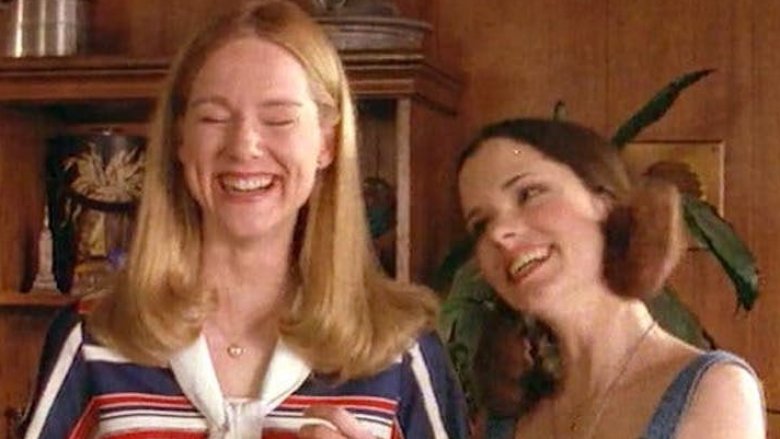The Biggest Scandals To Ever Hit PBS
PBS: It's the favorite network of grandmas, toddlers, and smart people. Since the '60s, the always curious and commercial-free (unless you count pledge drives) service has brought high-quality entertainment and informational programming into millions of homes. Even if you're one of the three people who didn't catch Downton Abbey fever, there's something for everyone on PBS: The oldsters love the literary adaptations, generations grew up with Sesame Street and Mister Rogers' Neighborhood, and science teachers across the land have taped countless Nova episodes to show in class the next day. PBS is a vital TV institution, even back when the medium was considered a "vast wasteland."
The staid and respectable broadcaster is also a scandal magnet. Perhaps it's because it receives its funding not from advertisers but from government programs and viewer donations, so it's subject to more scrutiny, or maybe it's because it's so associated with children's TV that society wants and needs to keep it pure. Regardless of why, PBS has found itself deep in controversial territory on several occasions.
Ben Affleck found his roots, and then PBS lost them
In the wake of the genealogy boom that made spitting DNA into a mail-order tube a major fad, PBS debuted Finding Your Roots. Guided by Harvard history professor Henry Louis Gates, the series helped celebrities learn about their ancestors. That's precisely what the show's research team did for special guest Ben Affleck in 2014, but the big-screen Batman didn't care for what they found.
As revealed in a massive hack of Sony emails published by WikiLeaks, Affleck successfully persuaded Finding Your Roots producers to edit out some potentially embarrassing material. "Here's my dilemma," Gates wrote to Sony executive Michael Lynton, "Confidentially, for the first time, one of our guests has asked us to edit our something about one of his ancestors—the fact that he owned slaves." Uh-oh. Gates goes on to say that excising content "would be a violation of PBS rules." When the episode did air, there was no mention of Affleck's slaveholding relatives.
After the email leaked, a PBS internal investigation determined that Finding Your Roots producers had allowed Affleck to use "improper influence" over them. Gates later spoke with the Los Angles Times and expressed "regret not discussing editing rationale with our partners at PBS" and for putting the broadcaster "and its member stations in the position of having to defend the integrity of their programming." PBS delayed the debut of Finding Your Roots' third season and pulled the Affleck episode from circulation.
The fall of PBS's Charlie Rose
Starting in 2017, the "Me Too" and "Time's Up" movements rocked all sectors of the media. Women (and some men) began speaking out en masse out about the sexual assault, sexual harassment, and egregiously sexist behavior they've experienced in the workplace at the hands of powerful men. One by one, dozens of powerful men were ousted from Hollywood (and/or faced legal action), including Harvey Weinstein, Kevin Spacey, and Louis C.K.
This cultural revolution in the making also brought down journalists, including CBS This Morning host and veteran PBS talk show personality Charlie Rose. In November 2017, the Washington Post published the accounts of eight women who accused Rose of sexual harassment and worse, alleging groping, explicit phone calls, and walking around nude. The next day, CBS fired Rose and PBS followed suit, showing the host the door and cancelling The Charlie Rose Show, a network staple since 1991.
No smiles for PBS's Tavis Smiley
Sometime in 2017, PBS launched an internal investigation into allegations it received regarding sexual misconduct by Tavis Smiley, host of the eponymous late-night talk show Tavis Smiley. After finding those claims "credible," the broadcaster "indefinitely suspended distribution" of Tavis Smiley, it said in a December 2017 statement. In other words, they cancelled it, and in January 2018, Smiley sued PBS, alleging breach of contract and damage caused to his production company, and that his firing was racially motivated. According to his suit, he said the misconduct charges represented "a pretext to finally rid themselves" of the host, because he "was not the 'team player' type of African-American personality PBS preferred to have hosting a nightly national news and public affairs program." Two months later, PBS filed a countersuit against Smiley, spilling the details of allegations against Smiley while also seeking $1.9 million in returned salary because the host violated PBS's moral clause.
Arthur's teacher got married and it was a whole thing
The sweet and gentle PBS Kids series Arthur, based on Marc Brown's books, concerns the life of an 8-year-old aardvark, his family, and his animal friends, teaching young viewers to navigate life with respect for themselves and other people. It was to that end in 2019 that Arthur aired the episode "Mr. Ratburn and the Special Someone."
The plot: Arthur and his friends discover that their teacher, Mr. Ratburn, got engaged. Weirded out by the notion of their teacher having a private, personal life outside of school, they spy on him and see him have lunch with a woman who picks on him. The kids assume this mean lady is the fiancée, and they set out to stop the wedding. Record scratch—that woman is Mr. Ratburn's sister, and he's actually marrying a sweet guy named Patrick.
The news that Mr. Ratburn is gay doesn't faze the kids one bit, but it did upset the operators of PBS affiliate Alabama Public Television—the channel refused to air "Mr. Ratburn and the Special Someone." According to programming director Mike Mckenzie, the episode didn't match up with the organization's aim to "provide children's programs that entertain, educate, and inspire." This isn't the first time APT took umbrage with the ArthurVerse's message of inclusivity. Back in 2005, it wouldn't air an episode of spin-off Postcards from Buster, because it depicted a kid with two moms.
Can you tell Katy Perry how to get off of Sesame Street?
Katy Perry's lyrical content is very of the now, often humorous, sex-positive, and feminist. But the singer's look, for the majority of her career, came straight out of the 1940s. Perry favored brightly-colored outfits that were just a little bit provocative, flirty but not trashy, showing off a little leg or cleavage but not too much. She showed up for a 2010 appearance on Sesame Street in a typical Katy Perry ensemble: a green dress that went down to her knees. Apparently some viewers thought the outfit was more fit for streetwalking than Sesame Street.
Perry shot a video for a reworked version of her hit "Hot N Cold," about how she can't figure out how Elmo sometimes wants to play with her (like dress-up, which she points out is why she's wearing her green dress, along with a bridal veil) and sometimes he flakes out. The segment leaked to YouTube in September 2010, three months ahead of its scheduled TV debut, where in just a few days it racked up nearly a million hits and 6,000 comments. A lot of those messages were extremely not-positive. "Thank you for speeding up the puberty process," wrote one unhappy customer. "You can practically see her [redacted]," said another. Sesame Street's producers decided to leave the clip online, but to not air it on TV.
The end of the Rainbow at PBS
In between starring in Roots in the late '70s and Star Trek: The Next Generation in the late '80s, LeVar Burton starred in another important show: PBS's Reading Rainbow. Burton hosted the show, filming interstitial segments where he'd visit cool places and interview people with interesting jobs, throwing to real kids reviewing books and narrators reading books aloud to viewers. It really put the "fun" in fundamental, and showed that reading was cool, only to earn an unceremonious cancellation in 2009. Neither PBS, nor the show's point of origin, affiliate WNED in Buffalo, would or could pony up the money to renew Reading Rainbow's broadcasting rights.
According to an NPR interview with WNED's content chief John Grant, the situation was complicated by No Child Left Behind, the educational act signed into law in 2002. It aimed to create new educational benchmarks for American students, a noble aim for sure, but it wound up with schools "teaching to the test" and focusing on measurable subjects, like math skills. It's not easy to test kids on how much they like to read, and so the Department of Education decided to put its funding into projects that taught kids how to read, while "Reading Rainbow taught kids why to read," Grant said.
A clash of Kevins
Kevin Clash joined Jim Henson's storied organization in the early 1980s, and made waves when he joined the Sesame Street cast operating Elmo, a friendly toddler monster. The character came to dominate the show, with a lengthy "Elmo's World" segment taking up a huge share of airtime and even earning a big-screen spin-off called The Adventures of Elmo in Grouchland. Clash became a beloved guy, especially after the release of Being Elmo, the acclaimed 2011 documentary about his rise to Muppet royalty.
However, in late 2012, a man named Sheldon Stephens came forward with claims he'd had a physical relationship with Clash while he was a teenager and the Muppet man was 24. Clash immediately took a leave of absence from Sesame Street, but Stephens later took back his story. Before Clash could return to work, another man, Cecil Singleton, announced that he'd had a similar relationship with Clash in the 1990s, and that he was suing for $5 million, citing "adverse psychological and emotional effects." Days later, a third man accused Clash of the same behavior.
In July 2013, a New York judge dismissed all legal actions against Clash, ruling that claims had been made past the statute of limitations. An appellate court upheld the judgment in 2014, and while Clash never returned to make new episodes of Sesame Street, he quietly re-emerged in 2018 as a puppeteer on the Henson Alternative-produced film The Happytime Murders.
Big Bird vs. Romney
In his 2012 campaign for the presidency, Mitt Romney promised to cut government spending, balance the federal budget, and lower taxes. During a debate moderated by Jim Lehrer—a veteran PBS newsman—Romney discussed the specifics of how he'd do all that. For one, he'd cut off federal funding to PBS. "I'm sorry, Jim. I'm going to stop the subsidy to PBS," Romney said, adding, "I like PBS, I love Big Bird. I actually like you, too."
While Romney upset plenty of PBS viewers—Big Bird is a beloved cultural touchstone and de facto PBS mascot—Sesame Street and its production company stayed above the fray. "Sesame Workshop is a nonpartisan, nonprofit, educational organization," the company said in a statement. "We do not comment on campaigns, but we're happy we can all agree that everyone likes Big Bird."
Romney's comments may have lost him votes in the election, easily won by opponent Barack Obama. Additionally, his idea wouldn't even be that effective. At the time, only 15 percent of PBS's budget came from public funds; the rest came from "viewers like you." If Romney had won, and tossed PBS's $444 million back to the American people, every citizen would've received a little over a dollar.
Fred Willard was a lewd and unwelcome dude
Fred Willard is a genuine comedy icon thanks to his work in projects like Fernwood Tonight, Anchorman, Waiting for Guffman, Modern Family, and especially Best in Show, where he played an enthusiastic but stupid dog show commentator. He's a gifted improvisational performer, but one night in 2012, he probably should have thought a little bit more before he acted.
On July 18, 2019, Willard paid to watch a triple feature at the Tiki Theater Xymposium in Hollywood...an "adult" film house. Just 23 minutes into the first movie, a Los Angeles Police Department anti-prostitution task force raided the Tiki, looking for anyone doing anything untoward. They spotted Willard, sitting quietly in the back row, then handcuffed him and took him outside. The 72-year-old actor promised that he hadn't done anything wrong, but after a brief "evidence check" around Willard's seat, police arrested and booked him on suspicion of engaging in a misdemeanor lewd act. He posted his $500 bail and was never officially charged with any offense, so long as he completed a diversion program.
Nevertheless, the whole incident lost Willard a job. PBS had just hired him to narrate an Antiques Roadshow-complementing series called Market Warriors. After his arrest, the broadcaster cut him loose, replacing him with Antiques Roadshow host Mark Walberg.
Hey, hey, it's a lawsuit
Michael Nesmith will likely be best remembered for his stint with the Monkees, but a years-spanning lawsuit involving PBS and his video distribution company, Pacific Arts, just might be the second thing mentioned in Nesmith's eventual obituary.
In 1990, PBS contracted Pacific Arts to make and distribute VHS tapes of its shows. Within a year, Pacific Arts had moved $30 million worth of cassettes, but PBS wasn't happy because Pacific Arts, facing financial difficulties, failed to pay the hefty licensing fees owed to the shows' producers. After Nesmith hadn't paid up by 1993, PBS formed an advisory board to handle its Pacific Arts problem and looked into legal strategies should Pacific Arts file for bankruptcy, which seemed like a real possibility. In court filings, Nesmith alleged while PBS was actively working toward severing its ties to his company, they made no indication of that intent.
In April 1994, PBS ignored its six-year agreement with Pacific Arts and signed a distribution deal with Turner Home Entertainment. The next day, PBS and producers Children's Television Workshop (Sesame Street), WGBH (Masterpiece Theatre), WNET (Nature), and American Documentaries (The Civil War) sued Pacific Arts for monies owed. Nesmith countersued PBS over his grievances, and all was settled by a federal court in 1999. Nesmith was ordered to pay more than $1.5 million in license fees... deducted from the $46.8 million a jury said PBS owed Pacific Arts, finding the broadcaster liable for intentional misrepresentation and other charges.
PBS's "Tales" got cut
Homosexual characters, and plots centered on issues that face the LGBT community are relatively common on TV today—not so much in the early 1990s, when cast members on a show as innocuous as Will & Grace reportedly received death threats for daring to portray gay people. It was a watershed moment for representation then in January 1994 when PBS aired a British-produced miniseries adaptation of Armistead Maupin's Tales of the City, a saga about life in San Francisco in the 1970s, which necessarily included a lot of material about gay culture. It also featured some nudity and drug use, and some PBS affiliates aired an edited version of Tales, while Chattanooga's PBS station pulled it an hour before its airtime and the Georgia legislature passed a resolution asking its state's affiliates to not show it.
PBS had plans for a follow-up called More Tales of the City, up until it announced in May 1994 that it wouldn't provide the funding. The broadcaster's higher-ups claimed controversy had nothing to do with the decision. "The whole notion that we're afraid of reaction to Tales is unfair," said PBS spokesman Harry Forbes. In response San Francisco PBS affiliate KQED vowed to finance More Tales. Ultimately, More Tales did air in 1998 ... on Showtime.
A losing game of Keno
Along with host Mark Walberg and elderly people saying "Oh my!" when they find out their candy dish dates to the Ming Dynasty and is worth $12,000, a common element of PBS's Antiques Roadshow is the presence of appraisers Leslie and Leigh Keno. Not mere TV personalities, these brothers know their stuff—Leslie Keno once served as director of American furniture at the high-end auction house Sotheby's, while Leigh was a respected specialist over at competitor Christie's. When they'd make somebody's year with a potentially lucrative appraisal during their two decades on Antiques Roadshow, they knew what they were talking about, having spent years buying and selling treasures for huge sums of money.
In 2016, it all threatened to come crashing down, as the Keno brothers faced massive financial and legal problems after a series of huge purchases. According to court filings, they strangely bid against each other—50 times—in a New Orleans Auction Galleries sale of a Turkish Angora carpet. While the item held a value of $800, Leslie Keno won the auction with a bid of $14,500 ... and the house sued when payment never arrived. The auction company actually sued both Keno brothers when they didn't pay the $400,000 bill for the 244 items they'd acquired. The suit was privately settled outside of a courtroom in early 2017.
